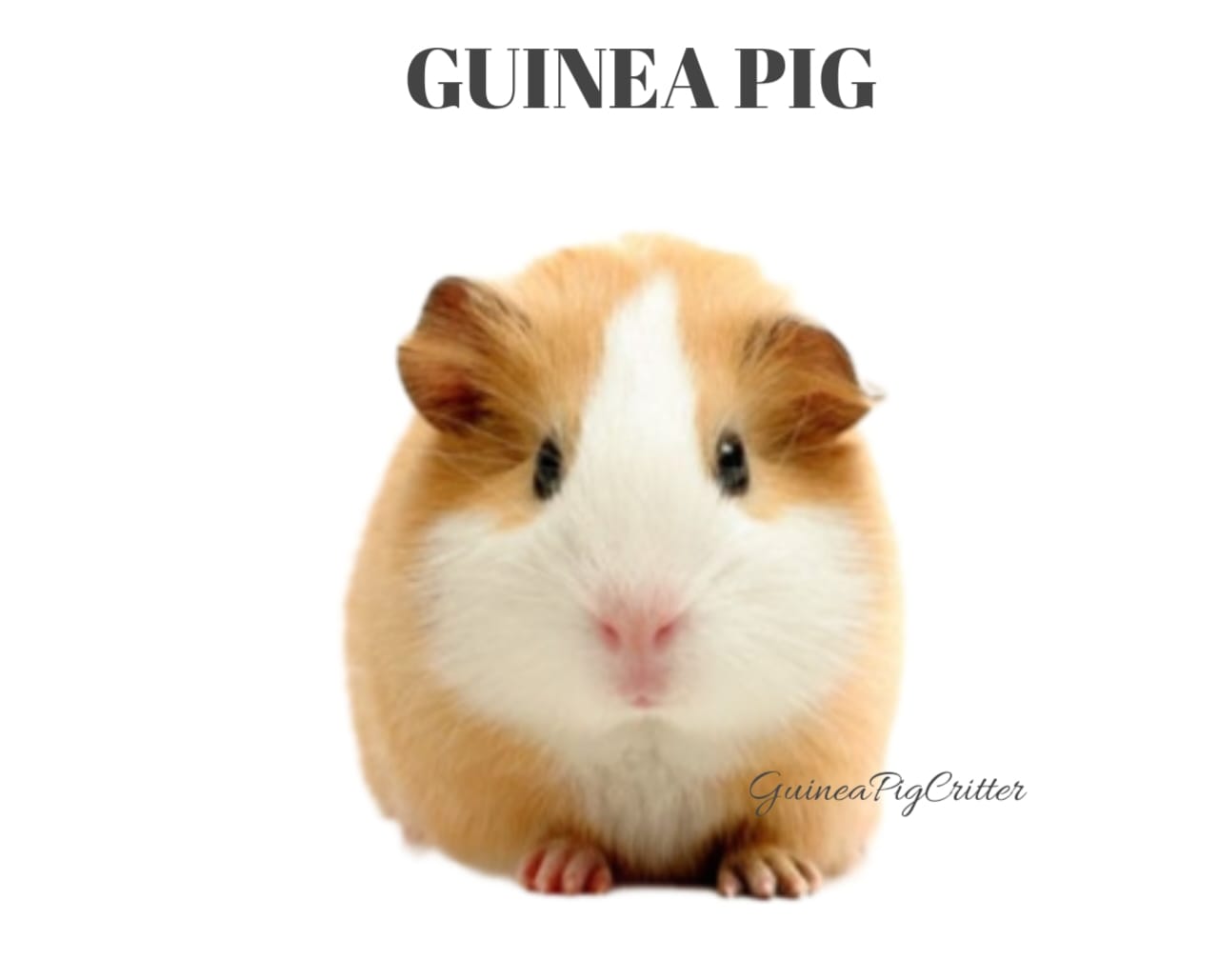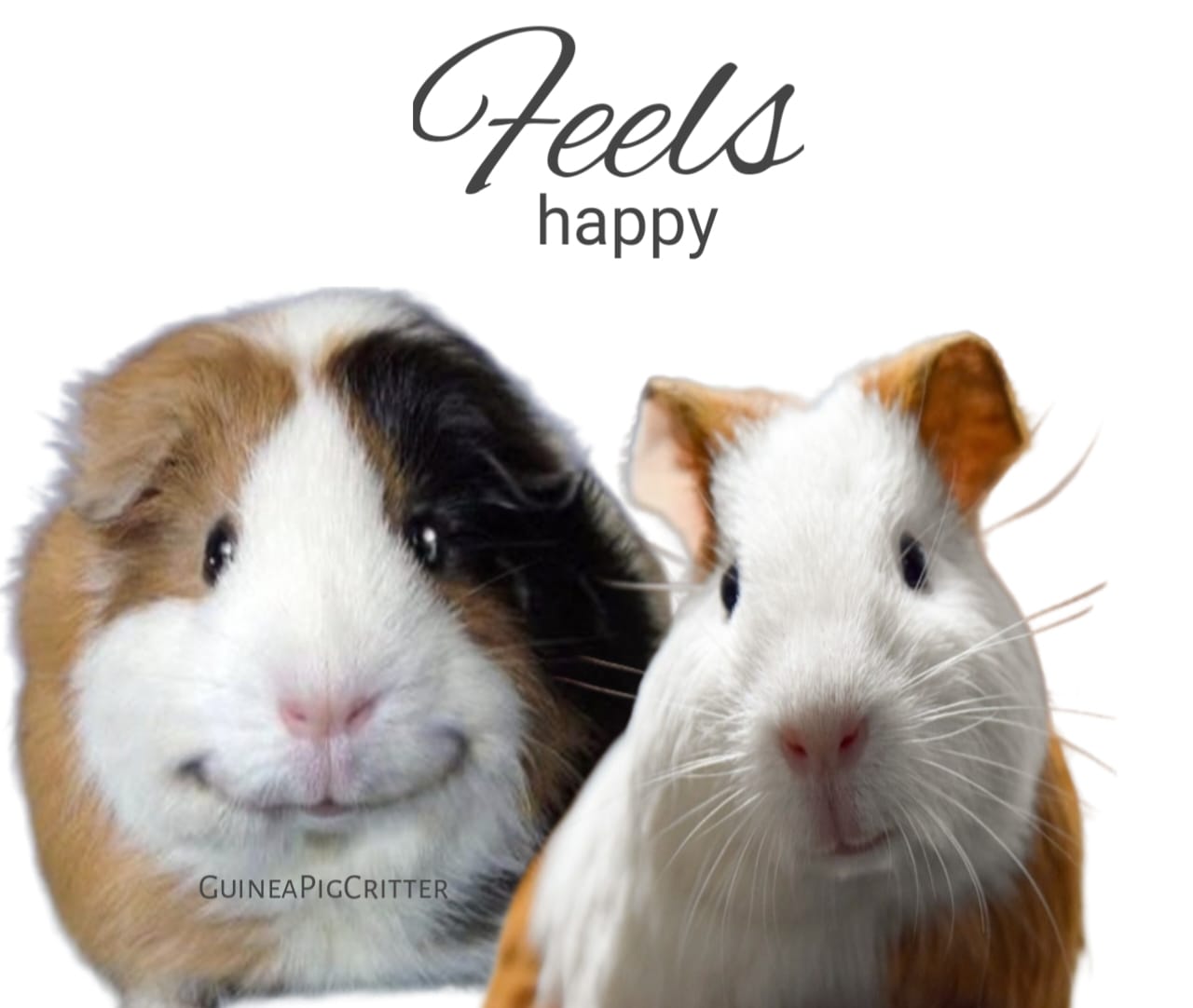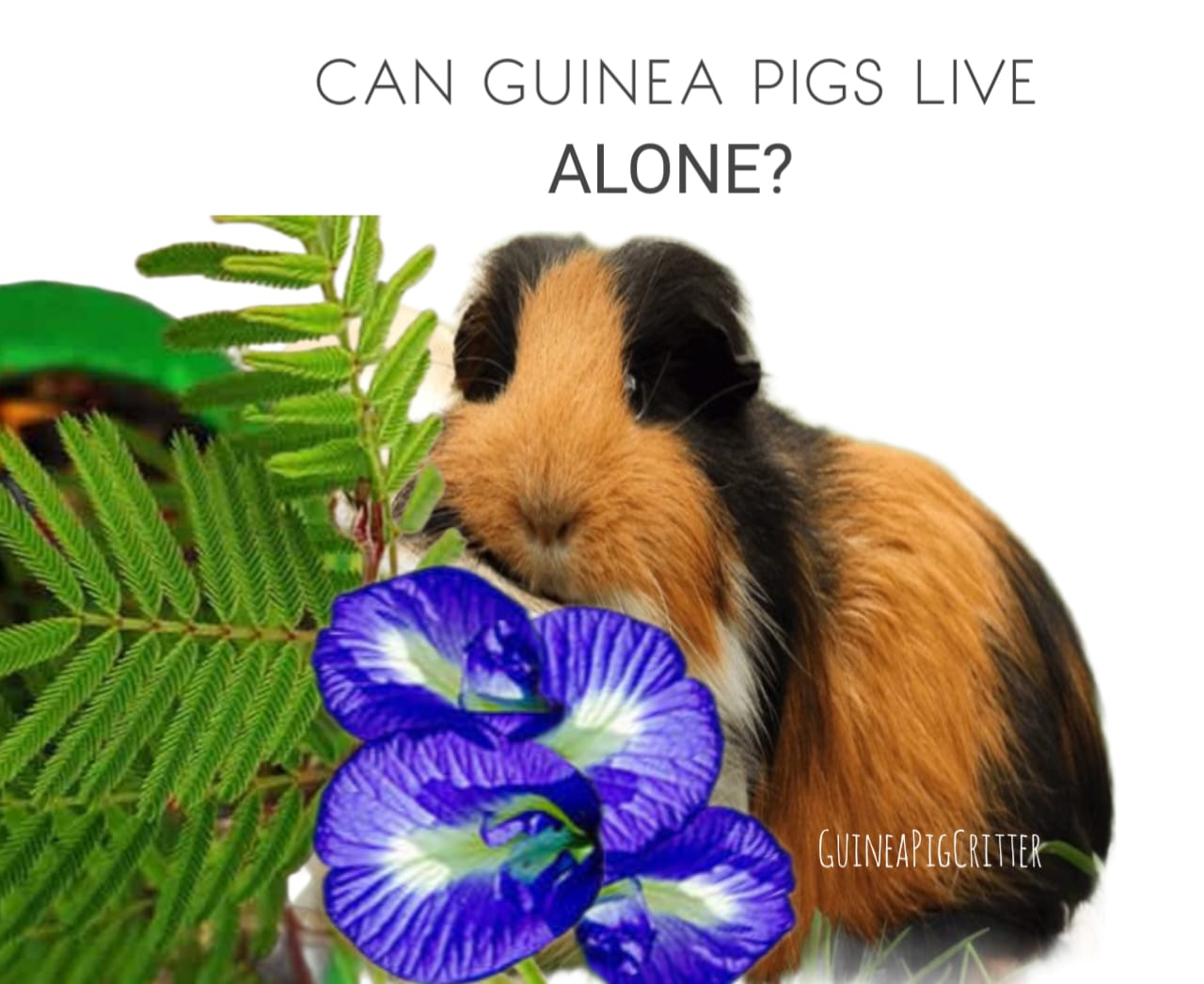Guinea pigs, also called cavies, are delightful pets that are both gentle and have a delightful squeak. It is vital to understand the needs of these social animals in order for them to be well.
This blog post is going to look at whether guinea pigs can live alone, what it means if they do and how we can make sure that they are happy.
See this post:- why guinea pigs eat blueberries?
The Social Nature of Guinea Pigs
Guinea pigs are inherently social creatures. In their natural habitat, they live in herds which ensure their safety, interaction with others and emotional support among themselves. Every guinea pig has a role in the hierarchy of this group as they exhibit a clear structure of dominance. They show their dependence on each other by communicating through various sounds, grooming one another and playing together.
These social behaviors remain even when such pets are kept domestically. The more natural and healthy behavior patterns usually displayed by Guinea pigs often occur when they are maintained in pairs or groups of two or more individuals than when confined singly as recommended by many pet care books.
They tend to be livelier, noisier and less troubled than those kept separately. Understanding this social nature leads us to appreciate why companionship is important for guinea pigs’ well-being.
Is it Possible for Guinea Pigs to Live Alone?
The question of whether or not guinea pigs can live alone is quite complicated. They can absolutely exist without the company of another guinea pig, but their quality of life will be severely affected. Below are some advantages and disadvantages to consider:
Advantages of Keeping Only One Guinea Pig:
- Easier to Control: With only one guinea pig, there is no risk of fights or dominance issues making care easy.
- Affordable: Less food, bedding and vet care are needed.
- More Attention: A single guinea pig might form a closer bond with its owner as a result of having all attention directed at it.
Disadvantages of Keeping Only One Guinea Pig:
- Solitude: Loneliness in guinea pigs often leads to depression which lowers the overall well-being.
- Increased Tension: In the absence of an associate, there could be greater stress and symptoms associated with anxiety in a guinea pig.
- Decreased Exercise: Solo guinea pigs tend to be less active and curious than those that have companions.
However, even though there might be instances where a lone existence for a guinea pig would be required; such as due to health conditions or failure to find an appropriate mate, keeping them as pairs or small groups is generally recommended.

Signs Showing Guinea Pigs Are Lonely
It has been found that loneliness can have significant impacts on the behavior and physical health of guinea pigs. The following are some indicators:
- Reduced Activity: A solitary guinea pig may be less active, spending less time exploring or playing.
- Loss of Appetite: Behavioral changes such as reduced eating can indicate stress or depression.
- Alteration in Voice: Excessive whining and abnormal vocalizations may also mean one is lonely.
- Grooming Issues: Stress can make one over-groom or not groom at all.
- Weight Loss: Appetite reduction due to anxiety causes weight loss in a stressed guinea pig who may also engage in aimless activities.
- Aggression: Sometimes, a solitary animal might get more aggressive or irritable.
These signs show the significance of companionship for guinea pigs and call for proactive measures to ensure their welfare.
Other Options apart from Having Companions
If it is impossible to keep more than one guinea pig, steps can be taken to alleviate the effects of loneliness:
Human Interaction – Spend lots of time interacting with your pet. Regular holding, stroking, and talking to them helps meet their social needs.
Enrichment Activities – Introduce various toys, tunnels, and hiding spots in their environment. Change toys regularly so as to retain their interest.
Mental stimulation – Puzzle feeders as well as foraging
Visual Stimulation: Place their cage in an area where they can see and hear household activities. This exposure can make them feel less isolated.
While these alternatives can’t completely replace the companionship of another guinea pig, they can help reduce the negative impacts of living alone.
Keeping a single Guinea Pig happy
If your guinea pig must live alone, it’s essential to take steps to ensure their happiness and well-being:
Daily Interaction: Spend at least an hour each day interacting with your guinea pig. This time can include holding, petting, talking, and playing.
Stimulating Environment: Create an enriching environment with plenty of toys, hideouts, and tunnels. Change the layout periodically to keep it interesting.
Balanced Diet: Provide a varied diet with fresh vegetables, high-quality pellets, and unlimited hay. Fresh water should always be available.
Regular Exercise: Allow your guinea pig to explore outside their cage daily. Ensure the area is safe and supervised.
Routine Vet Check-Ups: Regular veterinary visits are crucial to monitor their health and catch any potential issues early.
These aspects focus on which you need when you want your lone guinea pig live a life that is not short of substance.

New Guinea Pig Introduction
If you choose to introduce a friend, mindfully go about it:
Quarantine: Isolate the new guinea pig for some weeks and ascertain their soundness and freedom from any diseases.
Gradual Introduction: Let the guinea pigs look at each other through a barrier and smell one another before they can actually make direct contact. Gradually increase their interaction time.
Neutral Territory: Put them together in an area where neither of them have been before so that they do not fight over the territory.
Supervised Interaction: See how they behave with each other when you are watching them closely. It is normal to have some initial dominance behaviors but this will fade away.
Check this post :- Can Guinea Pig Consume Plums?
Most guinea pigs are able to successfully accept a new companion if given enough patience and careful monitoring
Frequently Asked Questions (FAQs)
Can a cavy enjoy life by itself?
A solitary cavy may live, but its quality of life is generally lessened. It yearns for companionship because naturally it is social in nature. If kept alone it still needs high levels of human interactions or else will be bored stiff.
How much time should I spend with my lone guinea pig?
Try to spend at least an hour every day interacting with your guinea pig, which could include holding him, petting him, talking to him or playing with him/her The more hours you can afford to dedicate per day the better.
What are the best toys and enrichment for one guinea pig?
Hideouts, chew toys, tunnels and puzzle feeders make great enrichment. To keep them interested change or rotate their toys regularly. You can also use DIY items such as cardboard boxes or paper towel rolls.
Should I get another guinea pig?
In most instances, yes. Guinea pigs are social animals generally benefiting from having a companion. Be sure to use proper introduction techniques when introducing another guinea pig.
What if my guinea pig does not get along with others?
Some guinea pigs may not get along with others due to personality differences or past experiences. In that case, focus on offering sufficient human interaction and environmental enrichment for their social needs.
Conclusion
Guinea pigs are social creatures which thrive on friendship. Although they can be loners it is not the ideal situation for them emotionally or physically.
If a lone guinea pig is unavoidable; ensure there is enough human contact, play and care given to them. Your guinea pig will live a fulfilled life even alone if you understand its social needs and take appropriate steps towards addressing them in time.


